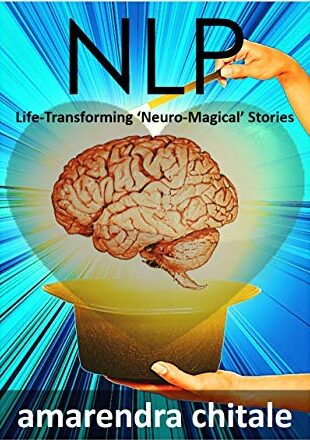
(Banner image Designed by Freepik)
Mental health challenges affect millions of people worldwide, contributing significantly to the global burden of disease. While different regions may experience varying mental health issues due to social, economic, and cultural factors, there are several widespread mental health challenges that affect people across the globe.
Here are the top 10 mental health challenges faced worldwide:
- Depression
Depression is a mood disorder characterized by persistent feelings of sadness, hopelessness, and loss of interest in activities. It can range from mild to severe and affects people of all ages. According to the World Health Organization (WHO), depression is the leading cause of disability worldwide, affecting more than 300 million people. Limited access to treatment, stigma, and lack of awareness in many regions exacerbate the burden of depression.
- Anxiety Disorders
Anxiety disorders include conditions such as generalized anxiety disorder (GAD), panic disorder, social anxiety disorder, and specific phobias. Symptoms include excessive worry, fear, and physical symptoms like increased heart rate. Anxiety disorders are among the most common mental health issues, affecting approximately 264 million people globally. High prevalence, lack of adequate mental health services, and cultural attitudes towards anxiety can hinder proper diagnosis and treatment.
- Bipolar Disorder
Bipolar disorder is characterized by extreme mood swings, ranging from manic or hypomanic episodes (high energy, elevated mood) to depressive episodes (low energy, sadness). It affects about 45 million people worldwide and can severely disrupt daily functioning, relationships, and employment. Misdiagnosis, lack of specialized care, and stigma make it difficult for individuals to receive proper treatment.
- Schizophrenia
Schizophrenia is a severe mental disorder characterized by distorted thinking, hallucinations, delusions, and impaired functioning. Schizophrenia affects more than 20 million people globally. It has a significant impact on individuals and their families due to its chronic nature. Stigma, misconceptions, and a shortage of mental health professionals trained to manage this condition contribute to its burden, particularly in low-income countries.
- Substance Use Disorders
Substance use disorders involve the harmful use of alcohol, drugs, or other substances, leading to addiction and negatively affecting health, relationships, and work. An estimated 35 million people suffer from substance use disorders, with alcohol and opioid addiction being the most prevalent. These disorders often co-occur with other mental health issues. Social stigma, legal consequences, and lack of rehabilitation services make addressing substance use disorders difficult.
- Post-Traumatic Stress Disorder (PTSD)
PTSD is a mental health condition triggered by experiencing or witnessing a traumatic event. Symptoms include flashbacks, nightmares, severe anxiety, and intrusive thoughts. PTSD affects individuals globally, particularly those who have experienced war, violence, natural disasters, or other traumatic experiences. Veterans and survivors of violence are particularly vulnerable. Lack of mental health support, especially in conflict-affected areas, and cultural reluctance to seek help can hinder recovery.
- Eating Disorders
Eating disorders, such as anorexia nervosa, bulimia nervosa, and binge-eating disorder, are characterized by unhealthy behaviors related to food, body image, and weight control. While eating disorders are more common in high-income countries, they are becoming a global concern, affecting millions of people, particularly young women. Stigma, lack of awareness, and limited access to specialized treatment contribute to the complexity of addressing eating disorders globally.
- Obsessive-Compulsive Disorder (OCD)
OCD is a condition where individuals experience repetitive, intrusive thoughts (obsessions) and engage in ritualistic behaviors (compulsions) to reduce anxiety related to these thoughts. OCD affects approximately 2% of the global population, significantly impairing individuals’ daily lives and functioning. Stigma, lack of understanding, and inadequate mental health infrastructure prevent timely diagnosis and treatment in many regions.
- Autism Spectrum Disorder (ASD)
ASD is a developmental disorder that affects communication, behavior, and social interaction. It is a spectrum condition, meaning it affects individuals differently. The prevalence of autism is rising globally, with an estimated 1 in 160 children affected. Early intervention and tailored support are essential for improving quality of life. In many parts of the world, there is a lack of awareness, diagnostic tools, and resources for supporting individuals with autism and their families.
- Dementia
Dementia is a group of brain disorders that lead to memory loss, cognitive decline, and impaired daily functioning. Alzheimer’s disease is the most common type of dementia. Dementia affects more than 55 million people worldwide, with numbers expected to rise due to aging populations, particularly in low- and middle-income countries. Lack of awareness, early diagnosis, and support for caregivers are significant issues. Access to care, especially in resource-poor settings, is a growing concern as dementia cases rise.
The solutions lie in abundance however the most important factor is acceptance. Self-acceptance is the first step towards improvement. Second challenge is about the perceived social stigma of going to a therapist. So, a lot of people prefer attending trainings on topics related to psychology, psychotherapy, NLP, Emotional Intelligence etc. instead of going to a therapist. Somehow, it is easy for a lot of people to say they are attending trainings, rather than saying they are going to a therapist. But the biggest challenge is how the society looks at these issues. We need a complete change of perspective when it comes to judging mental issues, and other people who are going through the ordeal.
NLP and Psychotherapy have a wide range of solutions in these Mental Health Challenges. These two schools of thought give you a roadmap of becoming better. This is one place where you compulsorily need human factor and human touch, and where AI can’t do much. Making life better is a process, never a destination. We need to continue working on ourselves. We have all the resources within us to achieve our outcomes. We just need to be able to find a roadmap to access these resources.









